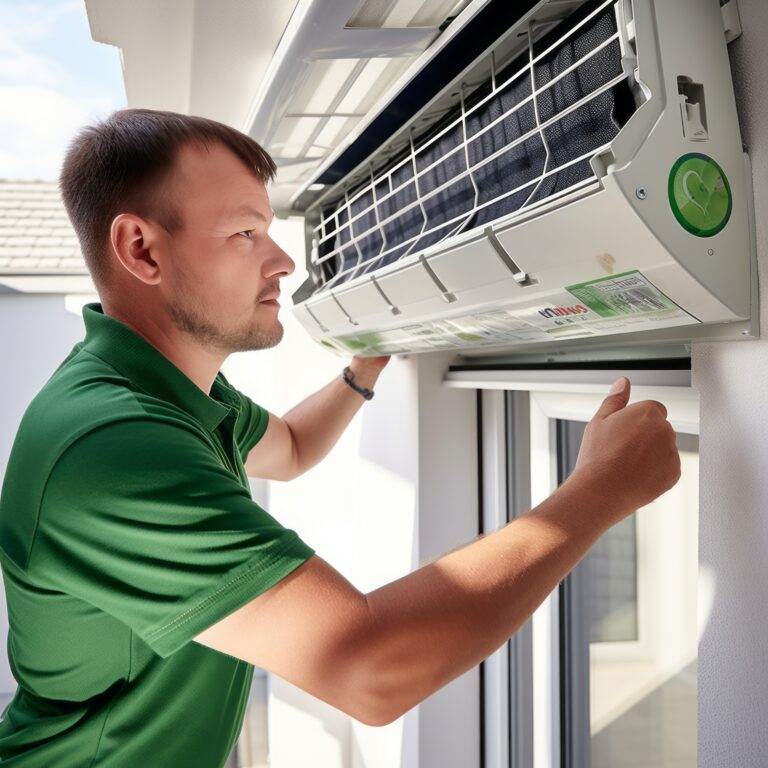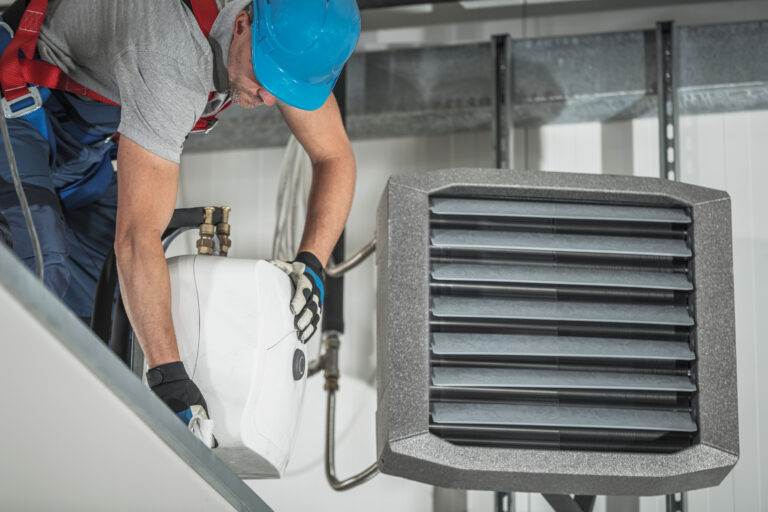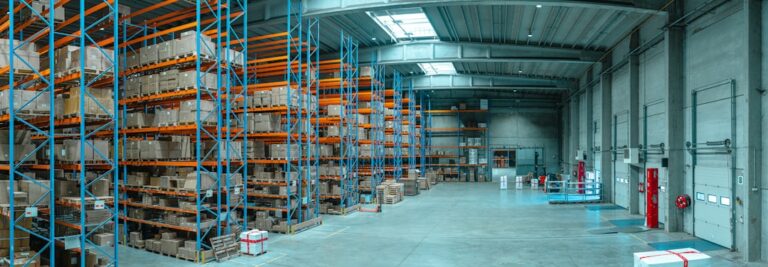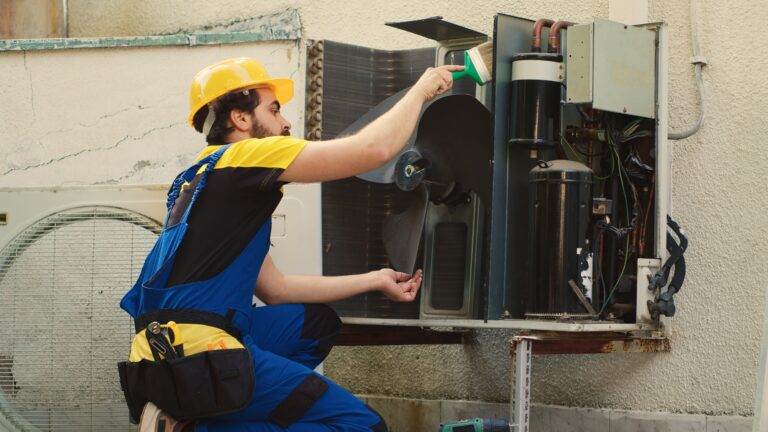Importance of HVAC Maintenance for Businesses
Enhancing Indoor Air Quality
A well-maintained HVAC system is crucial for enhancing indoor air quality. Businesses that prioritize regular maintenance can ensure that contaminants, allergens, and pollutants are minimized. Proper filtration and ventilation systems are vital in providing a healthy environment for employees and customers alike.
- Regularly changing filters can effectively reduce dust and airborne particles.
- Routine inspections can identify and tackle mold growth before it escalates.
Improving Energy Efficiency
Investing in HVAC maintenance leads directly to improved energy efficiency. Systems that are running efficiently consume less energy, translating into significant cost savings on utility bills.
- Simple tasks like cleaning coils and checking refrigerant levels can drastically enhance efficiency.
- Businesses can benefit from assessing their energy consumption patterns to identify areas for improvement.
Ensuring Comfort for Employees and Customers
Ultimately, the comfort of employees and customers rests heavily on the effectiveness of an HVAC system. A well-maintained system can maintain optimal temperature and humidity levels, which is essential for comfort.
- Consistent temperatures lead to increased productivity among employees.
- A comfortable environment makes a positive impression on customers, enhancing their overall experience.
In conclusion, regular HVAC maintenance is not just a matter of compliance; it is crucial for fostering a healthier, more efficient, and comfortable business environment.
The Cost of Ignoring HVAC Maintenance
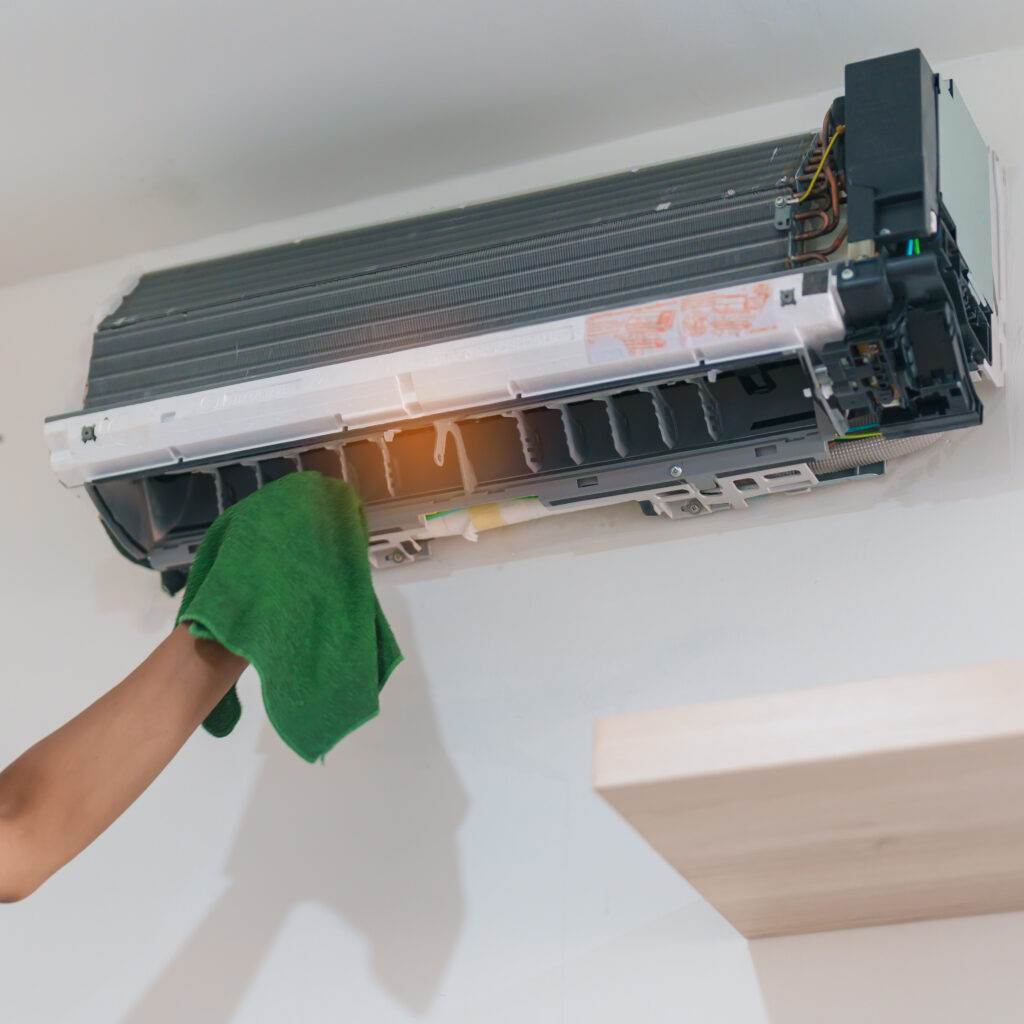
Potential for System Breakdowns
Neglecting HVAC maintenance can lead to unexpected system breakdowns, which often occur at the most inconvenient times. These failures can stem from a lack of regular check-ups, leaving minor issues to escalate into major problems.
- Common failure points include worn-out belts, clogged filters, and refrigerant leaks.
- A breakdown might necessitate emergency repairs, which can be both costly and time-consuming.
Impact on Business Operations
The repercussions of a failed HVAC system can significantly disrupt business operations. A sudden loss of heating or cooling can hinder productivity, impact customer satisfaction, and even result in temporary closures.
- Work environments become uncomfortable, leading to reduced employee morale.
- Customer visits may dwindle if they experience an uncomfortable atmosphere.
Financial Consequences
Ignoring HVAC maintenance can also lead to substantial financial consequences. Beyond immediate repair costs, there are long-term savings that businesses will miss out on.
- Costly repairs can quickly add up, surpassing routine maintenance expenses.
- Inefficient systems can lead to higher energy bills, cutting into profits.
In summary, the decision to neglect HVAC maintenance can have serious implications, impacting system reliability, operational efficiency, and overall financial health. Prioritizing maintenance is a proactive approach that can help avoid these costly pitfalls.
Benefits of Routine HVAC Maintenance
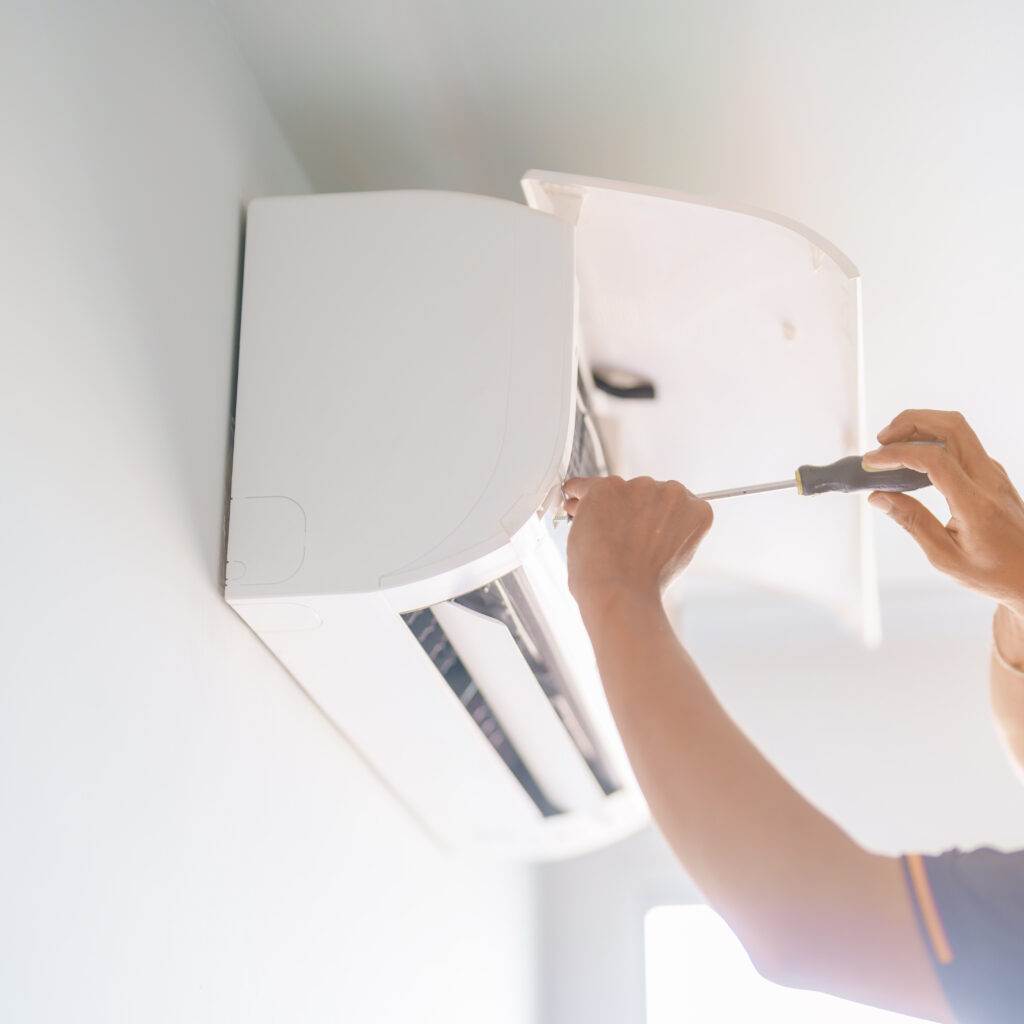
Prolonging Equipment Lifespan
One of the primary benefits of routine HVAC maintenance is the extension of equipment lifespan. Regular servicing keeps the system in peak condition, ultimately delaying the need for a full replacement.
- Systems that receive consistent care can last 15 years or more, whereas neglected units may fail within 10 years.
- Preventive measures such as lubricating moving parts and checking electrical connections go a long way in ensuring longevity.
Preventing Costly Repairs
Routine maintenance plays a significant role in preventing costly repairs. By diagnosing and addressing minor issues before they escalate, businesses can avoid hefty repair bills and catastrophic breakdowns.
- Regular inspections can catch problems like refrigerant leaks, which, if ignored, can lead to system failure.
- Scheduling maintenance can save up to 30% on repair costs over time.
Maintaining Optimal System Performance
Another key advantage of regular HVAC maintenance is the maintenance of optimal system performance. This is crucial for ensuring comfort and efficiency in any business environment.
- Well-maintained systems operate more efficiently, reducing energy consumption and costs.
- Customers and employees benefit from consistent temperature control and improved air quality, fostering a more pleasant experience.
In conclusion, the value of routine HVAC maintenance cannot be overstated. It not only prolongs equipment lifespan and prevents expensive repairs but also enhances overall system performance, leading to a healthier, more productive environment for both employees and clients.
Key Components of Routine HVAC Maintenance
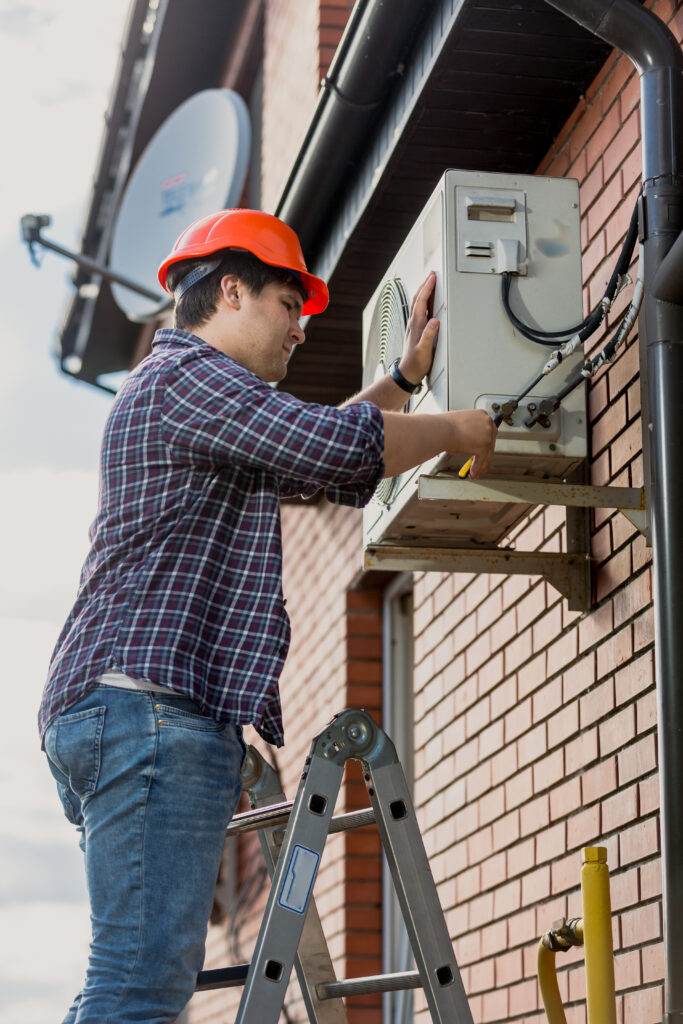

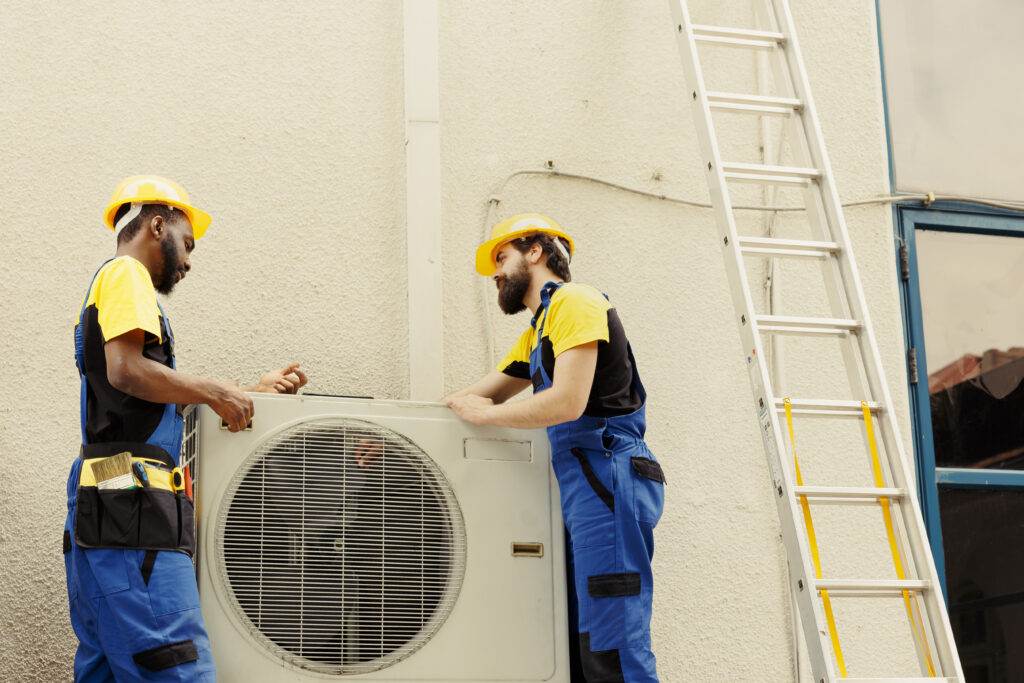
Regular Inspections
Regular inspections are fundamental to effective HVAC maintenance. These check-ups allow technicians to assess the system’s components and identify any potential problems before they escalate.
- Inspections typically include checking ductwork for leaks, inspecting the compressor, and evaluating electrical connections.
- Establishing a routine schedule for inspections can greatly enhance the reliability of your HVAC system.
Cleaning and Replacement of Filters
Another essential aspect of HVAC maintenance is the cleaning and replacement of filters. Dirty filters can significantly reduce system efficiency and contaminate indoor air quality.
- It’s recommended that filters be checked monthly and replaced every three months, or sooner if they appear dirty.
- Improved air quality leads to healthier workplaces, contributing to lower employee absenteeism.
Checking and Adjusting System Components
Finally, checking and adjusting system components is critical for optimal performance. This includes evaluating the thermostat, calibrating controls, and ensuring proper airflow.
- Regular adjustments can help maintain consistent temperature settings, which is particularly vital during extreme weather conditions.
- Keeping an eye on refrigerant levels and ensuring they are within specified ranges can also prevent system inefficiencies.
In summary, the key components of routine HVAC maintenance—regular inspections, filter cleaning and replacement, and system adjustments—are essential for maintaining a robust and efficient HVAC system. They contribute not just to operational longevity but also to the comfort and well-being of everyone in the building.
Hiring Professional HVAC Maintenance Services
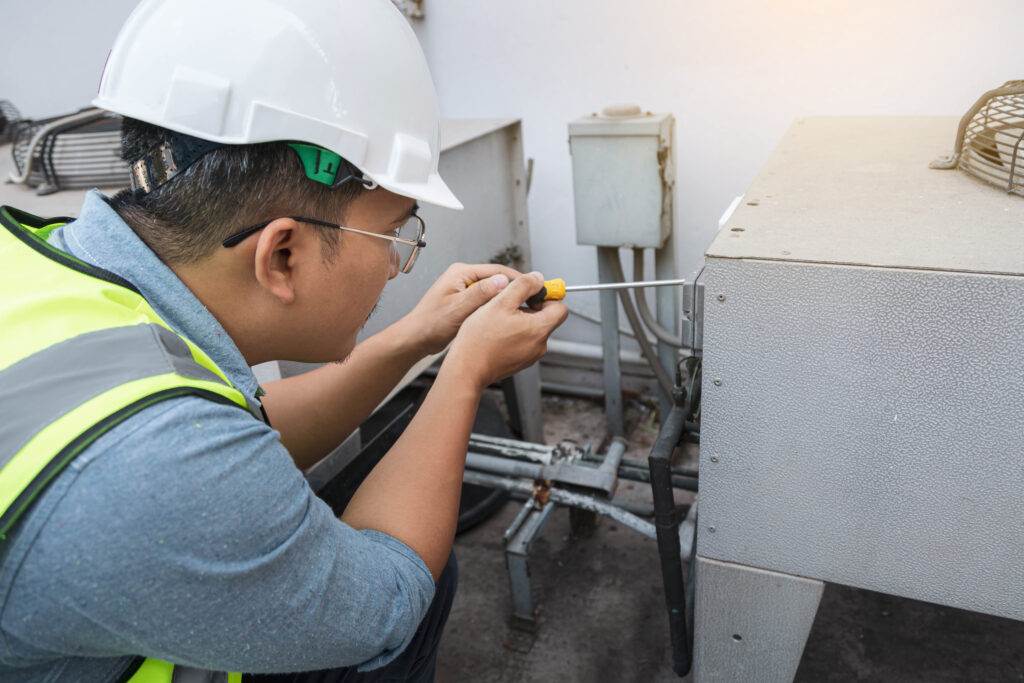
Qualifications to Look for in HVAC Technicians
When it comes to hiring professional HVAC maintenance services, it’s crucial to select technicians with the right qualifications. Look for certifications from recognized organizations as a sign of competence.
- Licensed and insured: Ensure they carry proper licenses and insurance, protecting your business in case of mishaps.
- Experience matters: Verify their reputation through reviews or testimonials. Experienced technicians are often more adept at identifying and solving complex issues.
Importance of Scheduled Maintenance Contracts
Engaging in scheduled maintenance contracts can provide significant benefits for businesses. These contracts outline regular service intervals, ensuring consistent upkeep of your HVAC system.
- Regular schedules prevent unexpected breakdowns and extend system longevity.
- Many contracts come at a lower cost compared to on-demand services, offering predictable expenses for budgeting.
Value of Timely Repairs and Upgrades
Timely repairs and upgrades are essential for maintaining system efficiency and comfort. A professional technician can quickly assess issues and recommend upgrades like programmable thermostats or energy-efficient units.
- Upgrading can enhance energy efficiency, leading to substantial cost savings in the long run.
- Quick repairs can minimize downtime and maintain a consistently comfortable environment for employees and customers.
In summary, prioritizing professional HVAC maintenance services ensures skilled technicians, structured maintenance plans, and prompt repairs, all contributing to a well-functioning HVAC system that supports business operations effectively.
Implementing a Proactive HVAC Maintenance Plan
Creating a Maintenance Schedule
Implementing a proactive HVAC maintenance plan begins with crafting a detailed maintenance schedule. This plan outlines regular tasks based on manufacturer recommendations and seasonal demands.
- Monthly checks could include filter replacements and visual inspections.
- Seasonal tasks might involve deeper cleaning and system optimizations, ensuring the HVAC operates efficiently year-round.
Recording and Tracking Maintenance Activities
Keeping detailed records of maintenance activities is crucial for tracking the HVAC system’s health over time. Documenting each service visit creates a history that aids in forecasting future needs.
- Use digital tools or simple spreadsheets to note dates, tasks completed, and any anomalies detected during inspections.
- A comprehensive log can help technicians quickly diagnose issues and suggest necessary improvements.
Addressing Emergencies and Unforeseen Issues
Despite thorough planning, emergencies can still arise. Having a strategy for addressing unforeseen HVAC issues is essential for minimizing downtime.
- Establish a response plan detailing how to contact technicians swiftly and outline the flow of communication.
- Regularly review backup options, such as portable heating or cooling units, to mitigate the impact of an unexpected system failure.
In conclusion, creating a maintenance schedule, tracking activities, and preparing for emergencies form the cornerstone of a successful proactive HVAC maintenance plan. Such strategies not only enhance system reliability but also foster a climate of preparedness and responsiveness within the business.
Monitoring and Measuring HVAC Performance
Utilizing Energy Management Systems
Monitoring and measuring HVAC performance is vital for ensuring efficiency and reducing operational costs. One effective tool for this is an Energy Management System (EMS), which allows businesses to track real-time energy usage and system performance.
- Integration with smart technology: EMS can connect with temperature sensors and smart thermostats to optimize performance automatically.
- Data visualization: These systems provide dashboards that make it easy to assess trends and identify areas for improvement.
Analyzing Energy Consumption Data
Analyzing energy consumption data is a crucial step in understanding HVAC efficiency. It helps identify patterns that reveal inefficiencies or unusual spikes in energy usage.
- Monthly reports can highlight unexpected increases in consumption, prompting further investigation.
- Breaking down energy use by area or equipment can point to specific areas that need attention or upgrades.
Fine-tuning HVAC Systems for Efficiency
Once performance data is collected, the next step is fine-tuning HVAC systems accordingly. Small adjustments can lead to significant energy savings and comfort improvements.
- Regular calibration of thermostats and sensors ensures they accurately reflect desired temperatures.
- Adjusting airflow patterns or ductwork configurations can enhance system efficiency and performance.
In summary, effectively monitoring and measuring HVAC performance through Energy Management Systems, data analysis, and system fine-tuning leads to significant operational benefits. By prioritizing these practices, businesses can achieve cost savings while maintaining a comfortable environment for employees and customers alike.
Regulatory Compliance and Environmental Responsibility
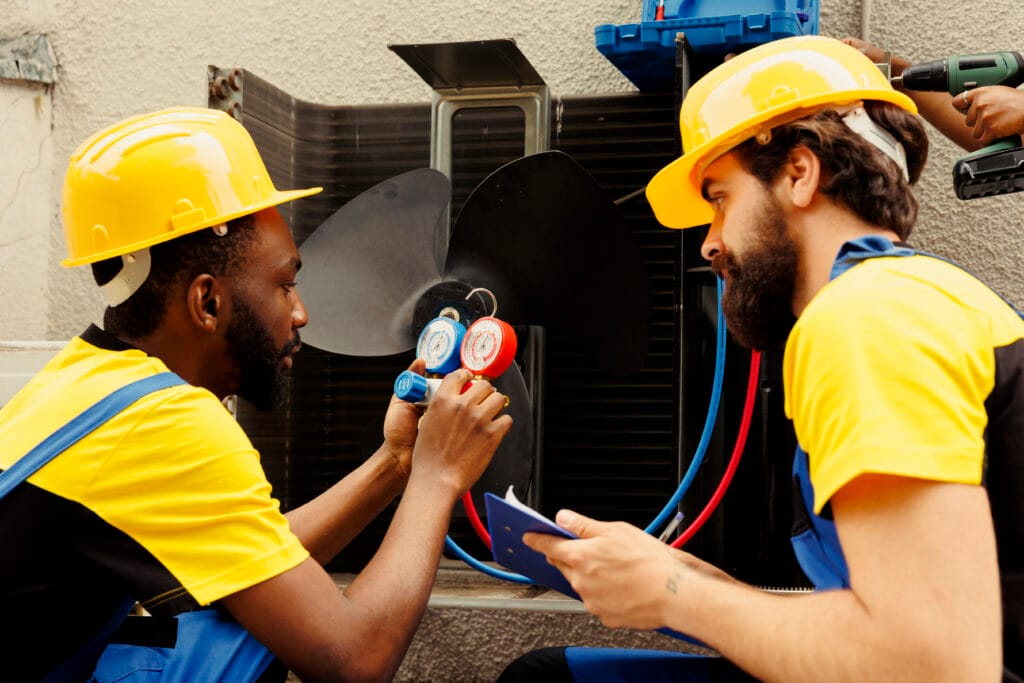
Meeting HVAC Regulations and Standards
In the realm of HVAC maintenance, regulatory compliance is not just a legal obligation; it’s a commitment to safety and efficiency. Adhering to established regulations and standards helps ensure that systems operate properly and responsibly.
- Local and federal regulations often guide refrigerant management and emissions, and staying informed about these is essential.
- Regular compliance audits can help identify areas that may require adjustments or upgrades to meet current standards.
Minimizing Environmental Impact
Minimizing environmental impact should be a primary goal for any business utilizing HVAC systems. By adopting strategic practices, organizations can contribute to environmental sustainability while benefitting financially.
- Implement energy-efficient systems that reduce carbon footprints—this includes options like high-efficiency furnaces and air conditioners.
- Utilizing alternative cooling and heating methods, such as geothermal systems, can greatly reduce reliance on traditional energy sources.
Sustainable Practices in HVAC Maintenance
Sustainable practices in HVAC maintenance not only improve system longevity but also influence broader environmental health. Incorporating eco-friendly practices into routine maintenance is an excellent way to promote sustainability.
- Using biodegradable cleaning products for system upkeep can prevent harmful chemicals from entering the ecosystem.
- Consider implementing a recycling program for old HVAC parts and refrigerants to reduce waste.
In conclusion, focusing on regulatory compliance, minimizing environmental impact, and embracing sustainable practices in HVAC maintenance leads to a healthier environment and a more responsible business model. These efforts not only demonstrate corporate social responsibility but also can result in cost savings and improved operational efficiencies in the long run.
Case Studies: Successful HVAC Maintenance Strategies
Real-world Examples of Businesses Benefiting from HVAC Maintenance
Many businesses have successfully implemented comprehensive HVAC maintenance strategies with remarkable results. For instance, a large manufacturing plant adopted a proactive maintenance plan, conducting regular inspections and system upgrades.
- Outcome: They reduced their energy costs by 25% and extended their HVAC system’s lifespan by several years, demonstrating the long-term value of consistent care.
- Another example is a retail store that prioritized filter changes and system cleaning. This not only improved indoor air quality but also heightened customer satisfaction, leading to increased foot traffic.
Lessons Learned and Best Practices from Case Studies
These examples highlight several key takeaways for other businesses to consider when refining their HVAC maintenance strategies.
- Regular Training: Ensuring maintenance teams are trained and up-to-date on best practices is essential for optimal system performance.
- Emphasize Monitoring: Businesses should actively monitor system data to identify issues before they escalate, utilizing energy management systems when possible.
In summary, real-world case studies demonstrate that effective HVAC maintenance strategies are beneficial for operational efficiency, cost management, and overall business success. Embracing these lessons and best practices can set a solid foundation for any company’s HVAC strategy.
Conclusion: Ensuring Long-Term Business Success with Routine HVAC Maintenance
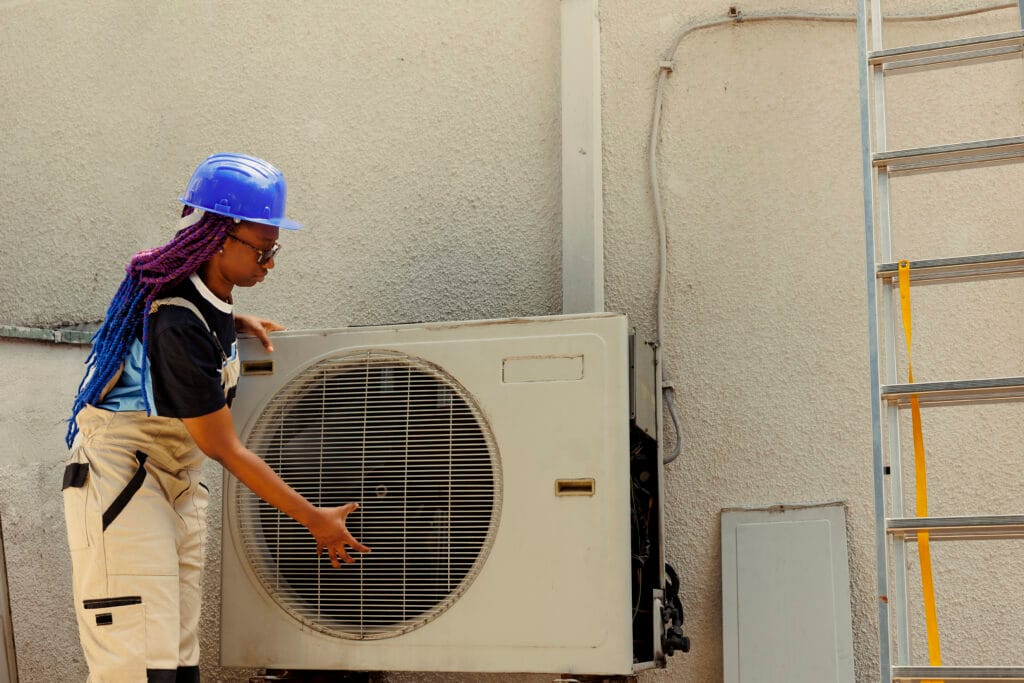
Recap of Benefits and Strategies
In conclusion, routine HVAC maintenance is pivotal for ensuring long-term business success. It not only enhances indoor air quality and energy efficiency but also significantly contributes to employee comfort and satisfaction. By implementing strategies such as routine inspections, timely repairs, and the use of energy management systems, businesses can reap a multitude of benefits.
- Key advantages include prolonged equipment lifespan, reduced operational costs, and minimized environmental impact.
- Embracing a proactive maintenance plan ultimately yields not just savings but a robust and efficient HVAC system.
Encouraging a Culture of Proactive Maintenance
Encouraging a culture of proactive maintenance within an organization is essential for sustaining these benefits.
- Engage Employees: Training staff on the importance of HVAC maintenance fosters accountability and awareness.
- Communication Is Key: Establishing open channels for reporting issues can lead to quicker resolutions and maintain optimal performance.
In summary, prioritizing routine HVAC maintenance creates a healthier, more efficient working environment. Businesses that embed proactive strategies into their operations position themselves for long-term success.
